Country house eventing: Where houses meet horses
Some of Britain’s greatest country houses become equine sporting amphitheatres once a year. Kate Green reports on how cultures collide with spectacular results. Photographs by Mark Williamson and Christopher Doyle.

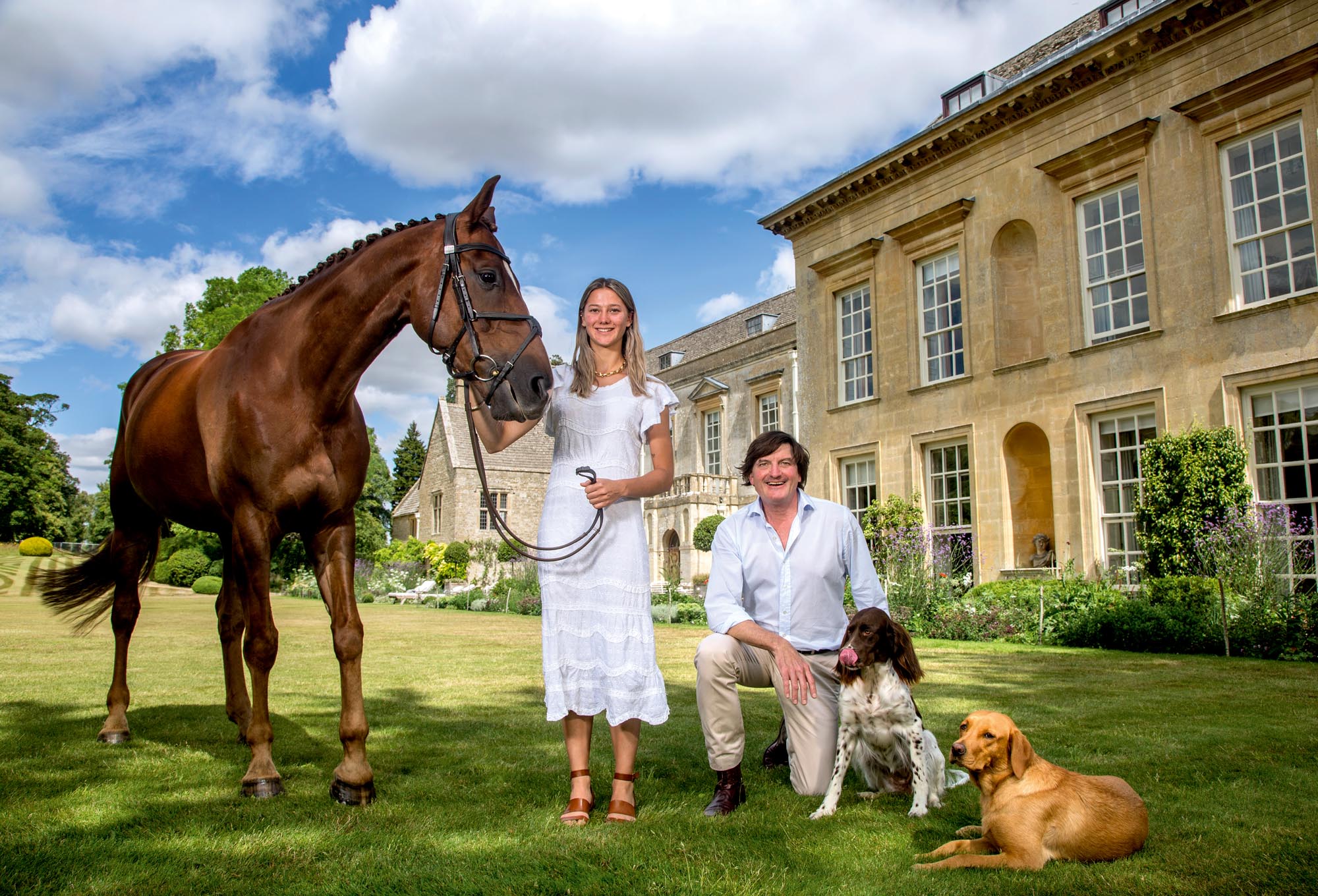
Exquisite houses, the beauty of Nature, and how to get the most from your life, straight to your inbox.
You are now subscribed
Your newsletter sign-up was successful
Things may have changed since the days of spectators wearing bucket hats and sitting on straw bales in front of Badminton House in Gloucestershire, but the gracious backdrops that form the British eventing season’s USP and create an evocative pull for ambitious riders are very much still standing.
The Range Rover Sport may have replaced the Dodge Coronet and the helmet and Lycra the bowler hat and elephant-ear jodhpurs, but, for seven decades, the world’s most famous horse trials have been taking place in front of splendid country houses with cross-country courses that thread through the undulating topography of ancient parkland planted with majestic trees. How pleased would the 10th Duke of Beaufort be to know that Great Britain is the current Olympic, World and European champion in eventing for the first time since 1972? After all, he started Badminton in 1949 to give home riders the edge at Olympic Games.
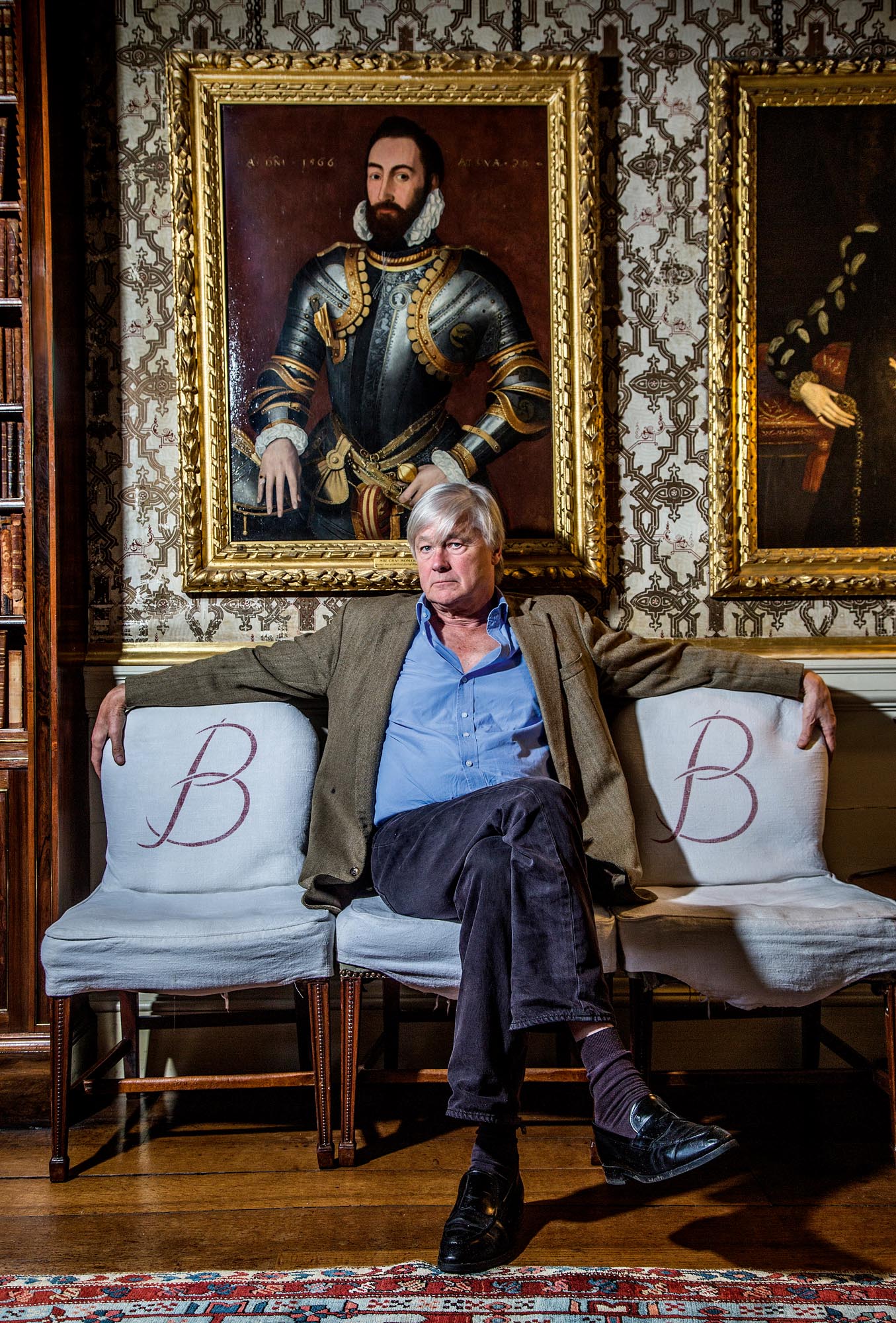
The great houses of Burghley in Lincolnshire, scene of a great sporting occasion this weekend, Houghton in Norfolk, Chatsworth in Derbyshire, Blenheim Palace in Oxfordshire (September 15–18) and Floors Castle, Blair Castle and Hopetoun in Scotland all play host to international competitions, often at the same time as being open to the public. One of the latest recruits is Thoresby Park in Nottinghamshire, seat of the Pierrepont family and now a hotel, the estate being run by a charitable trust. It made its debut this year, replacing in the calendar the long-established horse trials at Belton in Lincolnshire after the National Trust decided to call a halt.
These elegant settings do nothing to dispel the myth that eventing is an elitist sport, although most riders are blissfully unaware of the Canalettos and Titians inside the houses they gallop past, nor are they worrying about Capability Brown’s landscaping as they jump into a lake — owners and visiting international competitors are more likely to do the tourist trail. The sport isn’t cheap to do, certainly, but it’s not elitist; social status has never been a guarantee against the indignities of a ducking in the water or the clatter of falling poles.
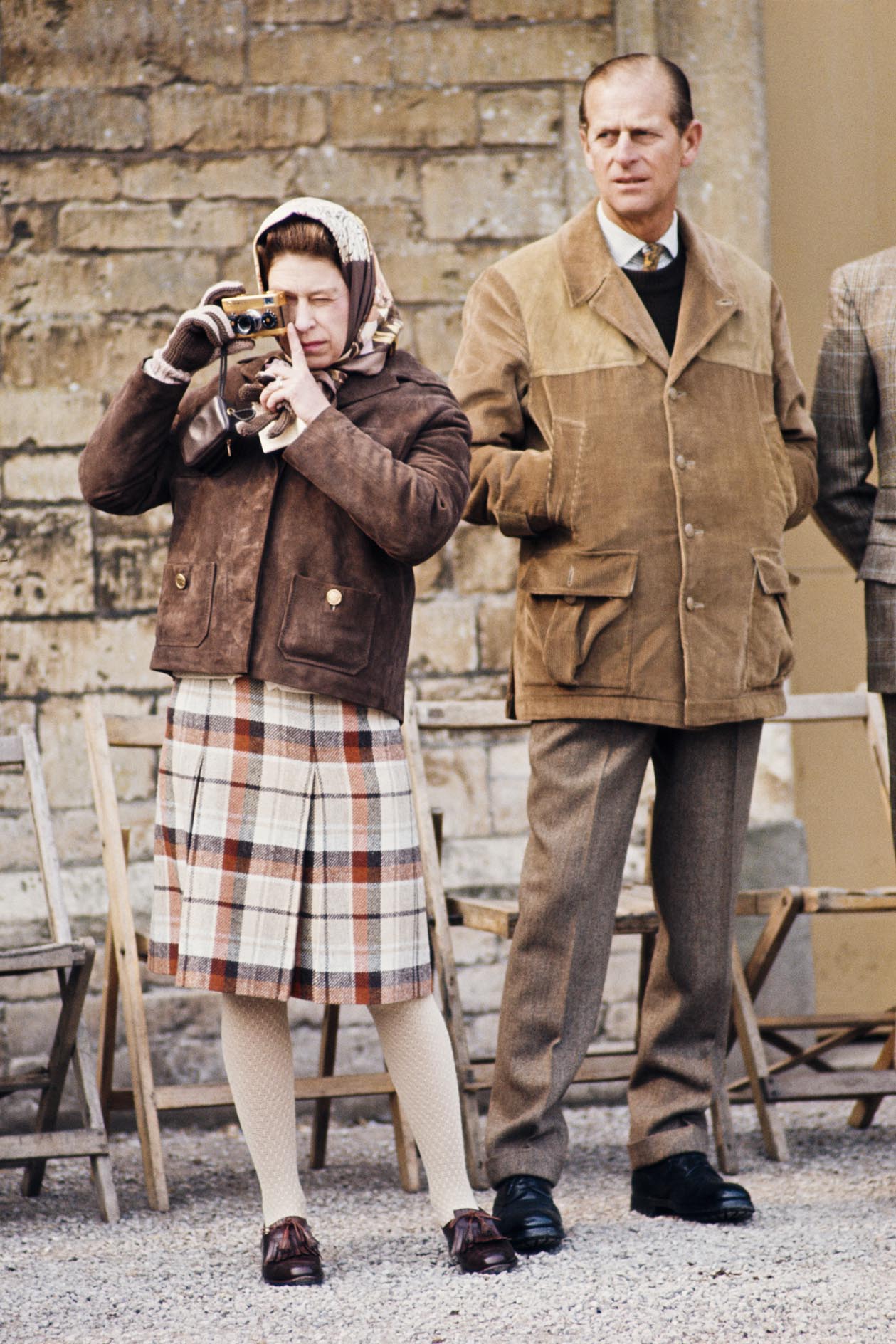
Talent, bravery, hard work, determination, the partnership between horse and rider — and a bit of luck — are what it takes to win; the inherent risk involved, plus a cheerful travelling army of mostly unpaid officials, creates a camaraderie that breaks down barriers like no other sport. Only when attendance can be measured in several tens of thousands will a horse trials make much of a profit and that can be slim — the cost of fuel, timber, insurance, infrastructure, regulations and so on are as influential as in any sector. Some competitions are pretty much run for love and all depend heavily on willing volunteers.
At Grade I-listed Port Eliot in Cornwall, where Sir John Soane remodelled the house and Humphry Repton the landscape, the St Germans family generously allows a grassroots horse trials to share the estate calendar alongside events such as a steam fair and Madness concert. The trials are run by members of the East Cornwall Hunt, which provides 90% of the volunteer officials. ‘A lot of events are moving away from greenfield sites because of the finance involved, but here the family loves seeing the horse trials in their old parkland,’ explains organiser Tamsyn Hutchings. ‘It’s like a mini Badminton; it’s an absolutely stunning site, a special place to compete and everyone mucks in.’
Firle Place in East Sussex, Rockingham Castle (Northamptonshire), Chilham Castle (Kent), Upton House (Oxfordshire), Cholmondeley Castle (Cheshire), Weston Park (Shropshire), Cirencester Park (Gloucestershire) and Smith’s Lawn in Windsor Great Park are among the places that cater for riders of all levels. In Gloucestershire, as well as running the national championships, The Princess Royal’s Gatcombe Park, with its natural amphitheatre of a park bowl, hosts the Corinthian Cup as part of the Festival of British Eventing, a chance for amateur riders to savour a high-profile atmosphere.
Exquisite houses, the beauty of Nature, and how to get the most from your life, straight to your inbox.
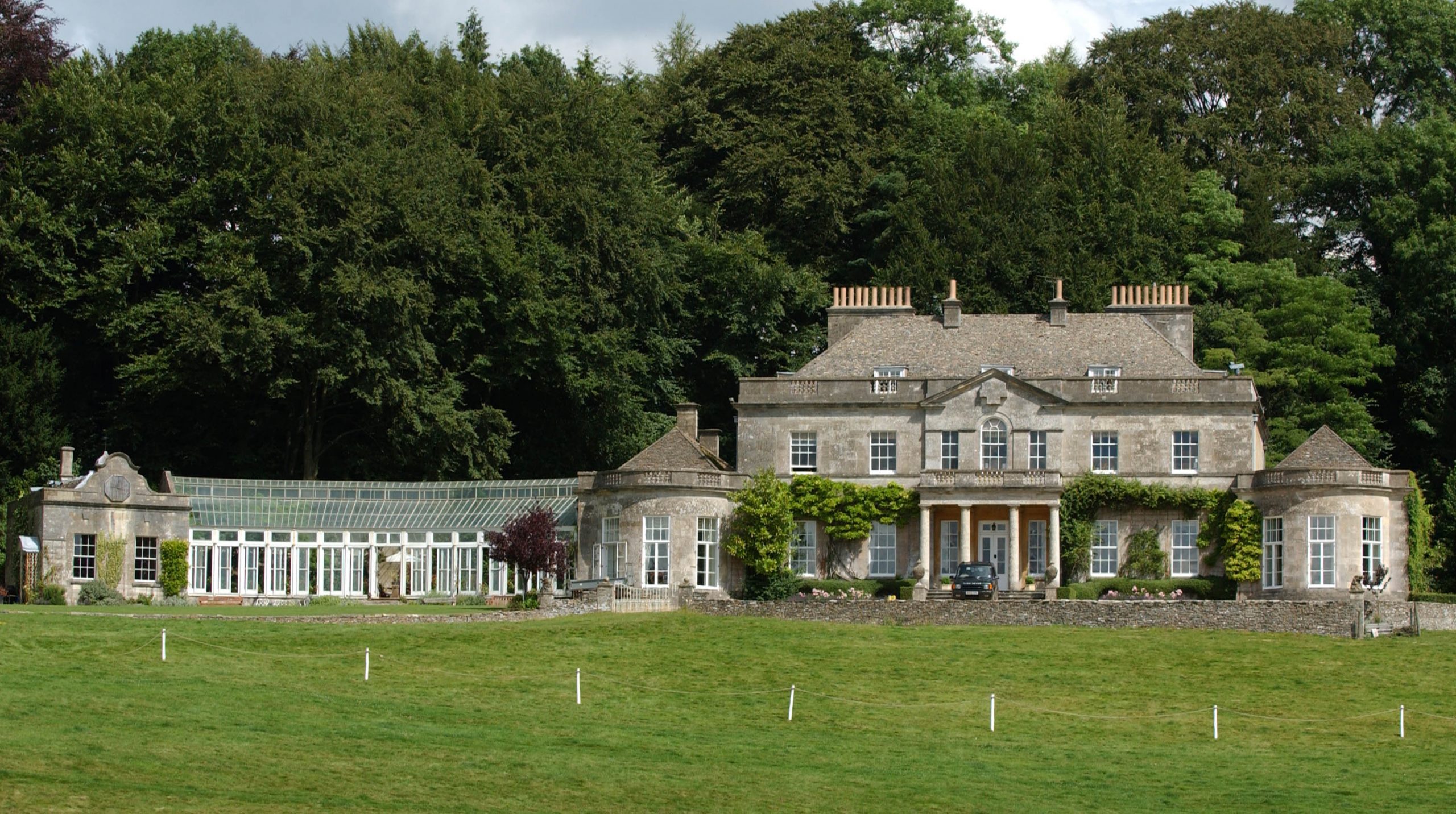
Despite the rise in purpose-built venues — only a few decades ago, the parkland back-drop was the norm — and the financial struggle to overcome two Covid-decimated seasons, the country house as international horse-trials host is holding its own, as the crowds flocking this weekend to watch some of the very best in the world gallop across Capability Brown’s landscape at Burghley, the house built for Elizabeth I’s advisor, William Cecil, will testify.
The event was started in 1961 by the Marquess of Exeter, an Olympic athlete, before Burghley’s present guardian, his art-historian granddaughter Miranda Rock, was born. ‘The horse trials have always been a part of my life, both throughout childhood, when I lived at Burghley House when my mother [Lady Victoria Leatham] was custodian, and once again when I returned with my own family as house director in 2007.
‘Not only is it a globally recognised sporting event, but it plays a huge part in the local community and means so much to so many. After a two-year hiatus [due to Covid], this year’s event will be particularly special. Even after so many years, I still find it fascinating to watch as the park transforms, through August, into a whole new world, ready to welcome 170,000 visitors.’
‘We are so fortunate in the UK that our sport can take place in the most incredible settings,’ says Helen West, chief executive of British Eventing, the national governing body. ‘To ride across ancient parkland, in front of some of the most historically significant houses in this country, is an honour and the settings often take my breath away.
‘The country house as a backdrop to an Olympic sport is unique. Where else can you have a picnic under a tree that is hundreds of years old and watch cross-country? It’s what makes eventing special and there isn’t a day that I’m not grateful for it.’
The Land Rover Burghley Horse Trials, Stamford, Lincolnshire takes place September 1–4, with cross-country on Saturday. Admission tickets from £24, plus £16 car parking, or watch at home on Burghley TV (£20) and BBC2 on Sunday (www.burghley-horse.co.uk). The house is closed during the horse trials
Cornbury House
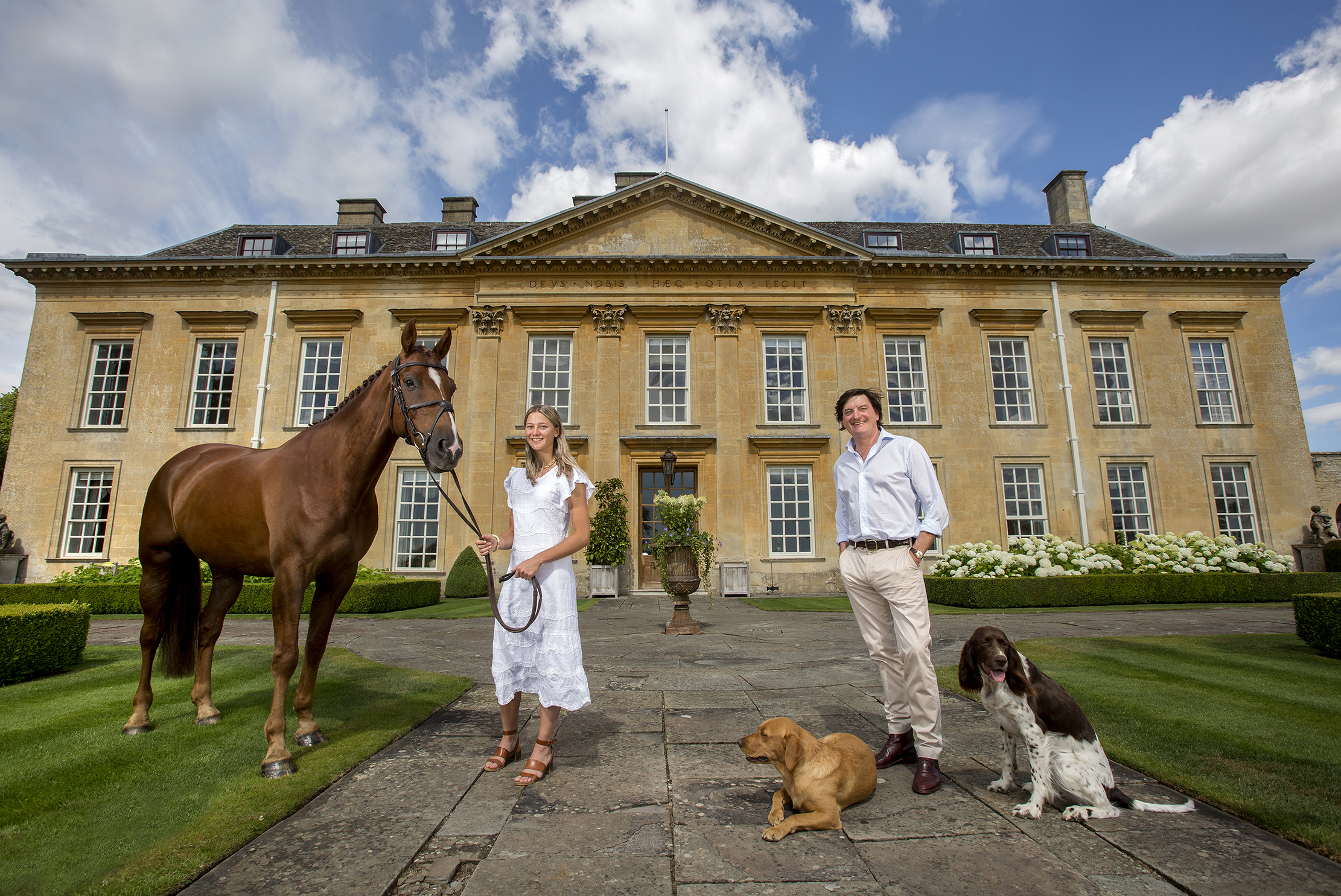
David Howden, founder and CEO of the Howden Group, energetic tenant of Lord Rotherwick’s historic estate in Oxfordshire and a generous patron to the sport, revived the horse trials here in 2020 after a break of nearly 20 years. This was a brave, yet rewarding and well-received move in a season that was all but obliterated by the pandemic. ‘When we moved here in 2017, we thought “What an amazing place” and felt very privileged and lucky,’ he says. ‘The house and grounds begged to come alive and, out of the blue, my friend Luis Munoz-Rojas, a Spanish eventer and breeder, sent me a clip of William Fox-Pitt riding around Cornbury. He said: “See this — you’ve got to have horse trials here again.”’
Mr Howden was already involved in racing and his sister, Miranda Fairhurst, was passionate about eventing, enthusing his daughters as well. Handily, he works with Richard Clapham, whose family are synonymous with the sport — sister Tiny was a member of the 1984 Olympic team — and who has taken on the role of event organiser, and he employs as course-designer David Evans, whose building credits include two Olympics.
Covid descended just as things were getting exciting, so the 2020 event went ahead without spectators. ‘I felt I couldn’t let the eventing world down and it’s probably the best thing we did, as I wanted the focus to be on the sport,’ Mr Howden explains. ‘In a funny way, it worked well not having spectators and I think we put on a marvellous show. It came down to a group of friends and a shared passion.’
Certainly, Cornbury’s arrival on the calendar after a miserable season was tangibly uplifting, held in glorious parkland amid the ancient Wychwood Forest, where longhorn cattle graze amid chestnut trees and the River Evenlode flows. Cornbury dates to the 14th century; it was a royal deer park, bestowed upon the Earl of Danby by Charles I in 1642.
‘I am passionate about the quality of eventing in Britain — nowhere else is better suited to showcasing the sport,’ says Mr Howden, who has put £1 million into British Eventing via the Howden Way, a training programme. ‘One of my aims is to keep Great Britain ahead and make sure eventing stays relevant. We want to encourage young people and more diverse people coming into eventing and to see quality riding. I want to deliver something for the sport, rather than the public.’
The Cornbury House Horse Trials, Oxfordshire, take place on September 8–11; there will be craft stands and food by Henry Astor (cornburyhousehorsetrials.co.uk)
Bramham Park
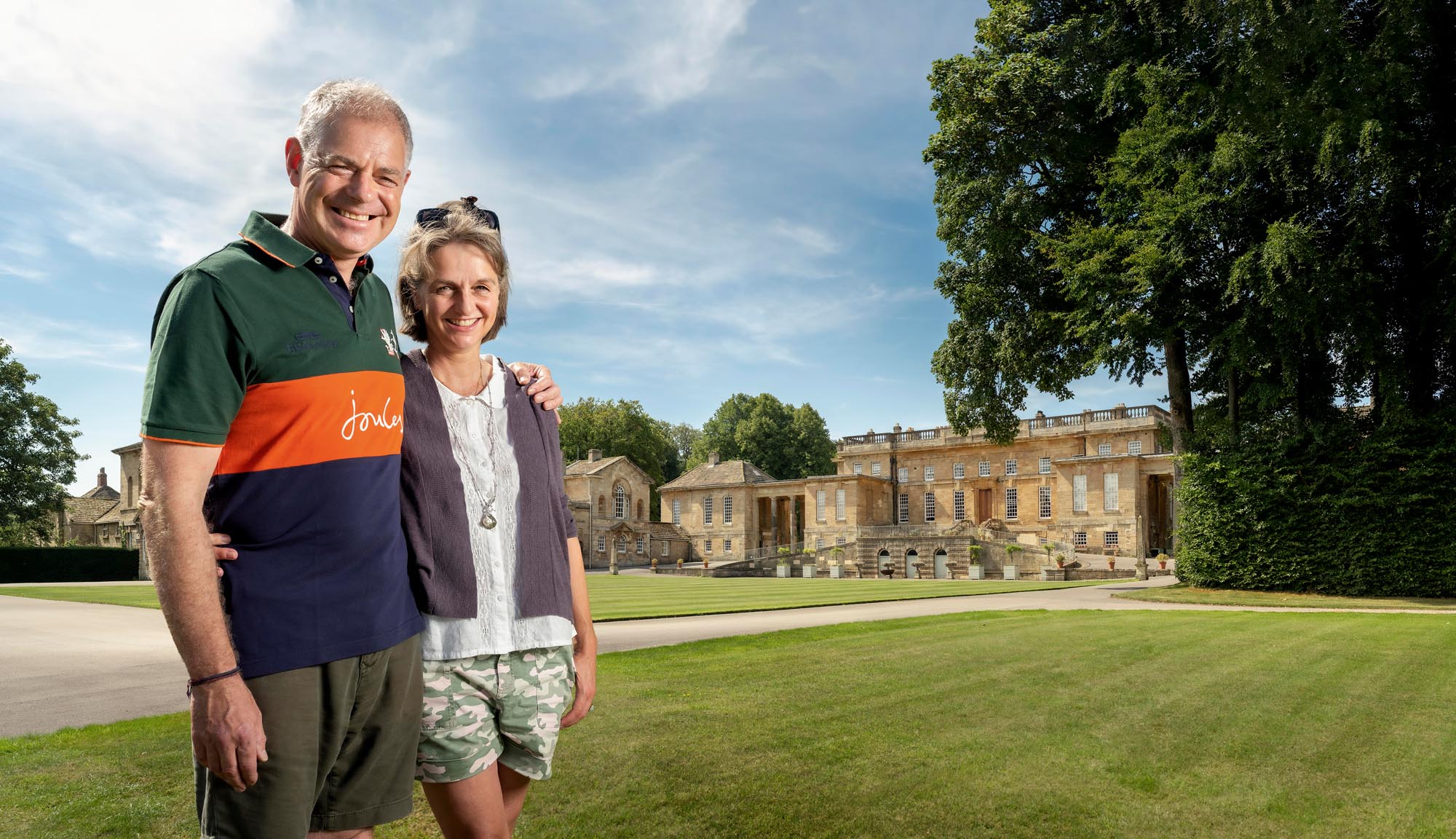
There has been an international horse trials — at four-star level, the second highest — at Bramham Park since 1974. It was started by George and Victoria Lane-Fox at their family home in West Yorkshire and is now presided over by their son Nick and his wife, Rachel. ‘I was at prep school when it started and when I was at Eton my parents could never come to the Fourth of June as it was cross-country day,’ Mr Lane-Fox recalls. ‘One year, Martin Whiteley [Eton housemaster and Little Badminton winner] drove me up afterwards.’
Bramham itself was constructed in 1698 by Robert Benson, who had been on a Grand Tour and dreamed of building a Palladian-style house in parkland. He left it to his son-in-law, also a George Lane-Fox. The horse trials, with a renowned cross-country course designed by five-time Olympian Ian Stark, is revered as a qualifier for Burghley and Badminton and attracts an international field; 10 nations were represented this year, including truckloads of French. ‘It has a reputation for being a proper course and never a dressage competition, which I think is a good thing,’ says Mr Lane-Fox.
Unlike most other horse trials, it also holds top-level showjumping and prestigious showing classes. The organiser is the resident agent, Nick Pritchard, which makes for a harmonious process and negates the risk of a ‘them and us’ situation between estate and horse trials.
Bramham’s other big economic driver is the Leeds Music Festival, on August bank holiday. ‘It works well: if it’s wet for the festival, there is another 10 months to sort it out; only a small part of the horse trials crosses over with the camping. Both are good economic propositions.’
Mr Lane-Fox adds: ‘I do enjoy the eventing. There are always worries and concerns, it has to wash its face and be financially viable, but you have to balance that with the quality of the event and provide good sport.’
The 2023 Bramham Horse Trials are on June 8–11 (www.bramham-horse.co.uk). The Leeds Music Festival will be held next August (www.leedsfestival.com). The gardens are not open during these events. Visit www.bramhampark.co.uk for opening times and to book house tours
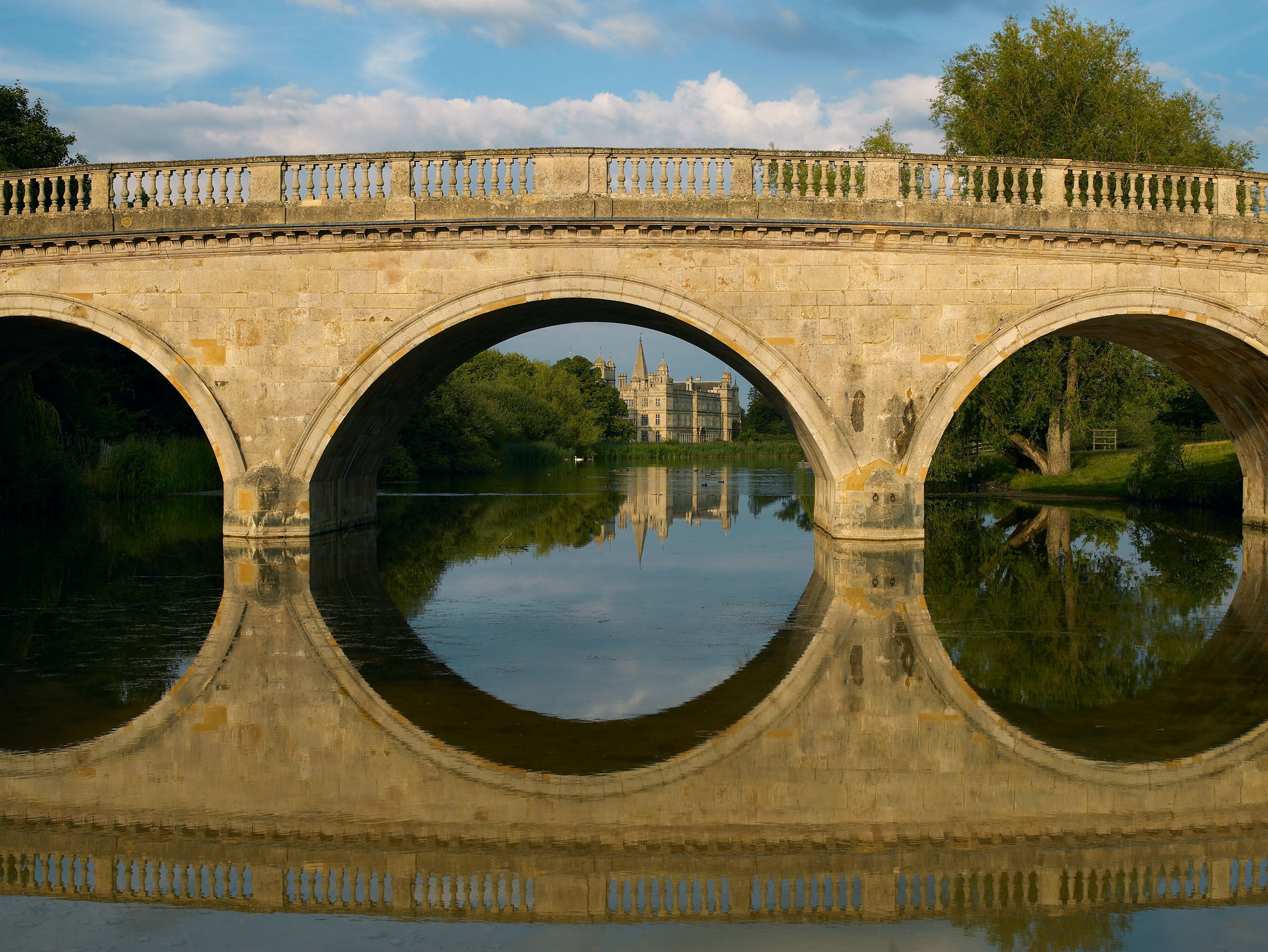
Burghley House: The 500-year story of one of the very greatest houses in Britain
Burghley House in Lincolnshire — the home of Miranda and Orlando Rock — is one of the very greatest houses in Britain.
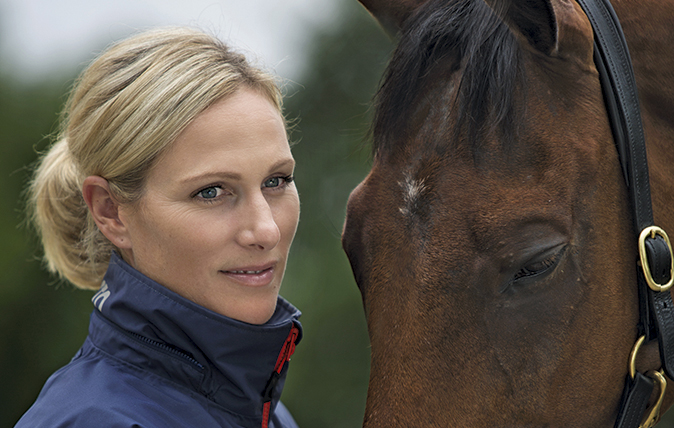
Credit: Andrew Ogilvy Photography
Zara Tindall on riding, falling off, and why High Kingdom is 'such a dude'
Zara Tindall is one of three riders to have held both world and European eventing titles simultaneously. She speaks to
Kate is the author of 10 books and has worked as an equestrian reporter at four Olympic Games. She has returned to the area of her birth, west Somerset, to be near her favourite place, Exmoor. She lives with her Jack Russell terrier Checkers.
